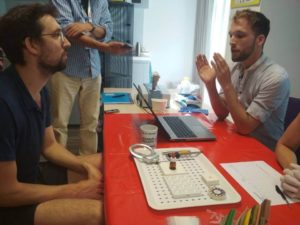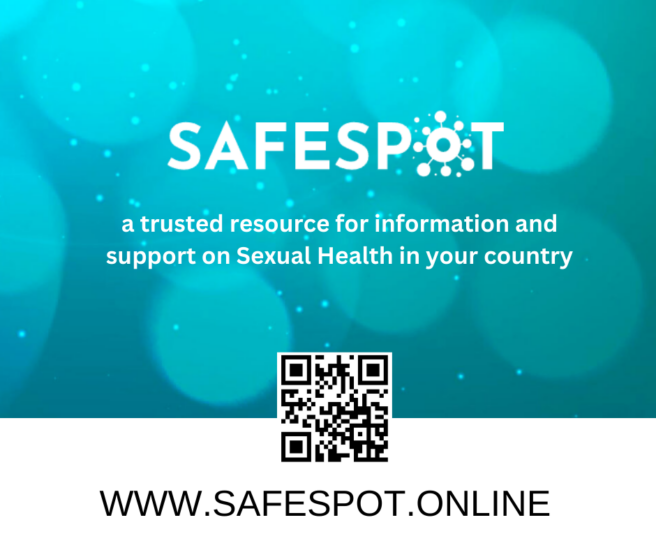
Author: Yana Kazmirenko, Ukraine
Saturday morning at the Schiphol airport. A conference participant from Ukraine – camera operator Igor K. – finds out that his tablets are gone. In a second, a confident man loses his heart: he becomes pale, his hands are shaking, and his eyes are full of dread. Igor has been taking methadone therapy for a few years, and for him losing his tablets can be life-changing. In Ukraine, it is not possible to receive methadone at the weekend.
Ukrainian drug users say that losing your tablets is the same as losing your passport. In both cases, you have to report to the police, where police officers issue a certificate to confirm the loss and only then a doctor would give you methadone. Igor is standing in the huge Amsterdam airport. He has three hours before his flight. It turns out that it is easier for a Ukrainian citizen to access methadone in Schiphol than back at home. After listening to Igor’s story, the doctor at the health station just prescribes him tablets for EUR 20.
Diseases are born in the streets
That was how the 22nd International AIDS Conference in Amsterdam (AIDS 2018) ended for me. After the event, it became clear that the capital city of the Netherlands had a full right to host this global forum. First of all, this right was earned because of its innovative HIV programmes, including progressive drug policies. It is not only about coffee shops where one can taste cupcakes with marijuana…
The first syringe exchange programmes, safe injection rooms and drug testing sites – those are all Dutch inventions, which were widely practised back in 1980s. This country was the first to realize that diseases are born in the streets and that nobody can tell better about the threat of HIV and ways to prevent it than drug users.
I could see it with my own eyes when I went with a study visit to the Jellinek drug testing centre with a group of journalists accredited at the conference. The building of the centre looks just the same as the neighbouring buildings. The centre has branches in Amsterdam, Utrecht, Almere, Amersfoort, Hilversum and other cities. In all of them, you can anonymously test your drugs for dangerous components.
Nightclub goers test their drugs
In 2017, over 12 thousand people tested their drugs (in 60% of cases ecstasy was tested). The centre has two tasks: monitoring of the market of club drugs and reducing the harms associated with their use.
A staff member of Jellinek says that visitors can access two types of tests: rapid test with a marker and laboratory testing, which takes a week. All kinds of things can be tested: tablets, powders, liquids, capsules or crystals. Every visitor may bring up to three samples to be tested. The price of one test in EUR 2.50.
E.g., an ecstasy tablet is first inspected, recording its colour, size, logo, acid test and comparing it to the national database with aggregated data of 30 drug testing centres from all over the country. If such tablet has already been tested (which happens in 75% of cases), the visitor is informed about its content straight away. If the tablet does not match any entry in the database, with the consent of its owner it is sent to a laboratory for further testing. The result is ready in a week. The only exception is LSD. Testing this drug is expensive, so Jellinek does partial testing not to go bankrupt.
Rapid test is the preferred option of the main drug users in the Netherlands – nightclub goers. After getting the testing results, they usually follow up with claims to the dealer who has sold them a dangerous product.
By the way, every year the Netherlands host more than a thousand musical festivals, with a mobile drug testing site operating at each of them. Such strict measures were introduced after 2014 when three visitors of a festival died after using low-quality drugs. However, using any drugs is a risk.
“People who started using drugs 5-10 years ago have to realize that now drugs may be more potent with a higher risk of overdose,” warn the experts working at the centre.
Ukraine needs changes
AIDS 2018 participant from Ukraine Anton Basenko, who is the head of the Ukrainian Union of People Who Use Drugs (PUD.Ukraine) says that establishing drug testing centres and safe injection rooms is the reason why there are no more streets covered with used syringes in Amsterdam.
In Ukraine, there are also talks about opening such drug testing centres and safe injection rooms. However, they will not appear unless the legislation changes. So far, such facilities are outlawed and people who open them may be incarcerated for running drug dens.




